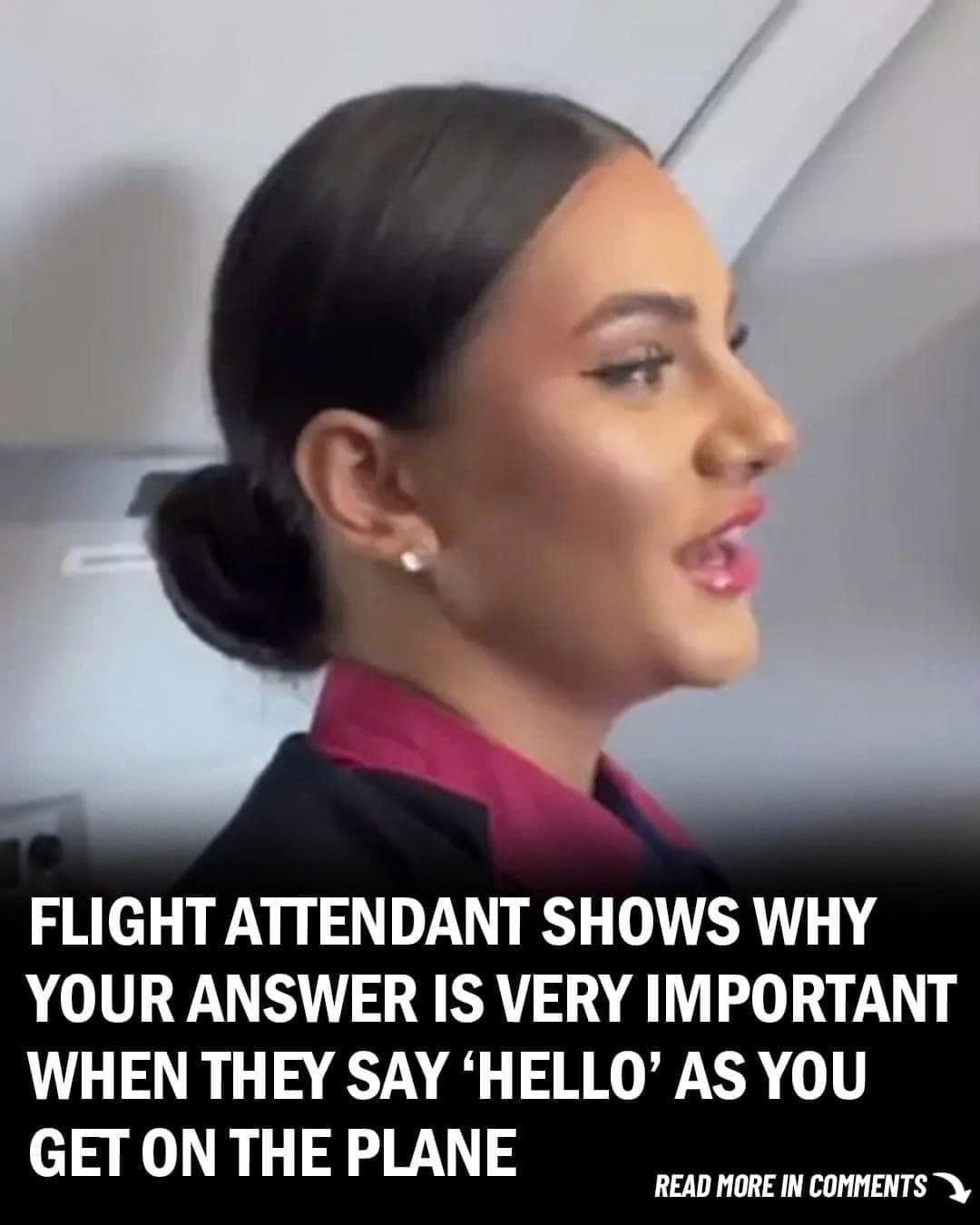When you board a plane, you’ll likely encounter a warm greeting from a flight attendant. A friendly ‘hello’ gestured to every passenger. While it seems like a simple courtesy, this interaction serves a crucial purpose beyond just politeness.
The True Purpose Behind the Greeting

Responding to a flight attendant’s greeting is not just about being polite; it’s also part of their responsibility to ensure passenger safety. This brief interaction is a subtle assessment tool used to gauge a passenger’s condition, particularly about alcohol consumption. As many travelers enjoy a drink or two at the airport bar before boarding, flight attendants need to assess whether any passengers might be too intoxicated to fly safely.
Spotting Potential Issues

Passengers who have indulged too much can become a safety concern. Anecdotes abound of travelers so intoxicated they are unable to navigate the aircraft safely, leading to disruptive situations. One memorable incident involved a passenger who had the entire plane laughing as he struggled to walk down the steps due to excessive drinking. Flight attendants aim to prevent such scenarios by detecting signs of intoxication during their initial greetings.
Evaluating Passenger Readiness
 According to Wizz Air flight attendant Iona Iachim, the greeting is a way to check if passengers are too drunk or sick to fly. This evaluation is crucial for maintaining a safe environment within the confined space of an airplane. Flight attendants are trained to look for signs of intoxication or illness. These factors can escalate into larger issues during the flight.
According to Wizz Air flight attendant Iona Iachim, the greeting is a way to check if passengers are too drunk or sick to fly. This evaluation is crucial for maintaining a safe environment within the confined space of an airplane. Flight attendants are trained to look for signs of intoxication or illness. These factors can escalate into larger issues during the flight.
Identifying Potential Helpers

Beyond assessing for potential issues, the greeting serves another important function: identifying passengers who could assist in an emergency. By engaging with passengers during boarding, flight attendants can quickly assess who might be calm and capable in a crisis. This knowledge gives them a mental map of where these helpful passengers are seated, should they need assistance during the flight.
Debunking Myths: It’s Not About Attraction

Some passengers might think the friendly greeting is a sign of attraction, but this is rarely the case. While flight attendants maintain a professional demeanor, they are primarily focused on safety and efficiency. However, there is a bit of humor behind the scenes; the term ‘bob’ might be used as a lighthearted code among the crew for ‘best on board,’ referring to passengers they find particularly pleasant.
Navigating In-flight Etiquette

While the interaction may sometimes seem friendly, it’s important not to misinterpret this professionalism as an invitation for flirting. Flight attendants prefer to keep the atmosphere respectful and professional at 30,000 feet. If you’re interested in further interaction, the best approach is to discreetly share your contact information as you disembark.
When Safety Is Imperative





